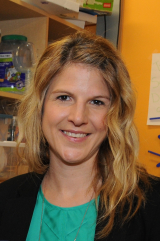The Role of Affective and Cognitive-Executive Processes and Structural Brain Abnormalities on Social Adjustment in Pediatric Brain Tumor Survivors

Background
Pediatric brain tumor survivors (PBTS) experience difficulties with social adjustment. These difficulties have been found to worsen with time and impact survivors' quality of life, school outcomes and future employment. Social adjustment difficulties are a serious health risk that have been found to be comparable to the health risks associated with drinking and smoking. The ability to improve social adjustment in PBTS has been limited by a lack of understanding of the predictors of social adjustment difficulties in this population.
Project Goal
The goals of the current study are to identify some of the factors that might be contributing to social adjustment difficulties in PBTS. Forty-three PBTS who have been diagnosed with a brain tumor within the last 10 years and 43 healthy children who have not had a brain tumor will be invited to participate and complete some tests that will assess various aspects of their social adjustment. They will also undergo imaging of their brain (MRI) that will aim to see whether there may be brain abnormalities caused by their brain tumor treatment that are linked to social adjustment difficulties. Their parents, teachers and classroom peers will also complete measures designed to assess the social adjustment of the PBTS and healthy children. This study will identify some of the predictors of social adjustment in PBTS. This will help us learn to better identify which survivors may be at greatest risk of social adjustment difficulties and to design better treatments to help these survivors.
"Pediatric brain tumor survivors suffer multiple psychosocial late effects. The ALSF Psychosocial Launch Grant will advance our understanding of survivors' social difficulties, improve our knowledge of children at risk for social difficulties and help design better treatments." -- Fiona Schulte

